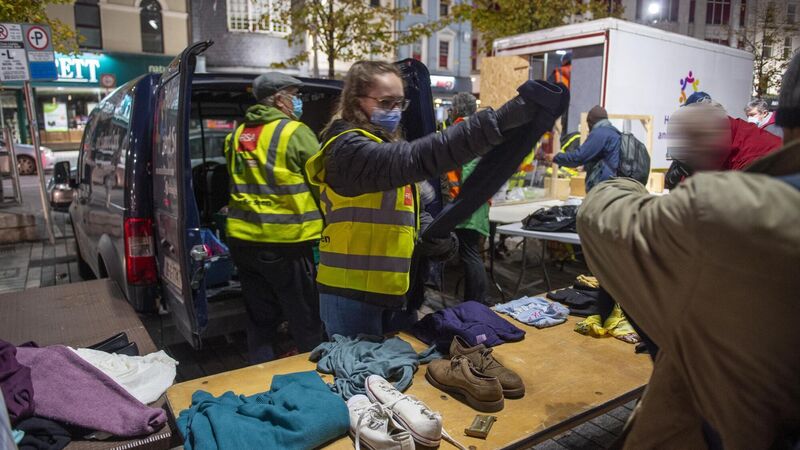One in four community organisations cannot meet demands of cost-of-living crisis

Every Tuesday and every second Friday night Homeless Help and Support Cork set up on St Patrick Street, Cork, to hand out hot meals and clothes. Picture: Dan Linehan
A quarter of community organisations dealing with people in the grip of the cost-of-living crisis are unable to meet demand, according to FoodCloud.
The organisation, which works with more than 600 Irish charities and community groups, facilitating food donations from retailers every day, also said they expected the situation to get worse.













